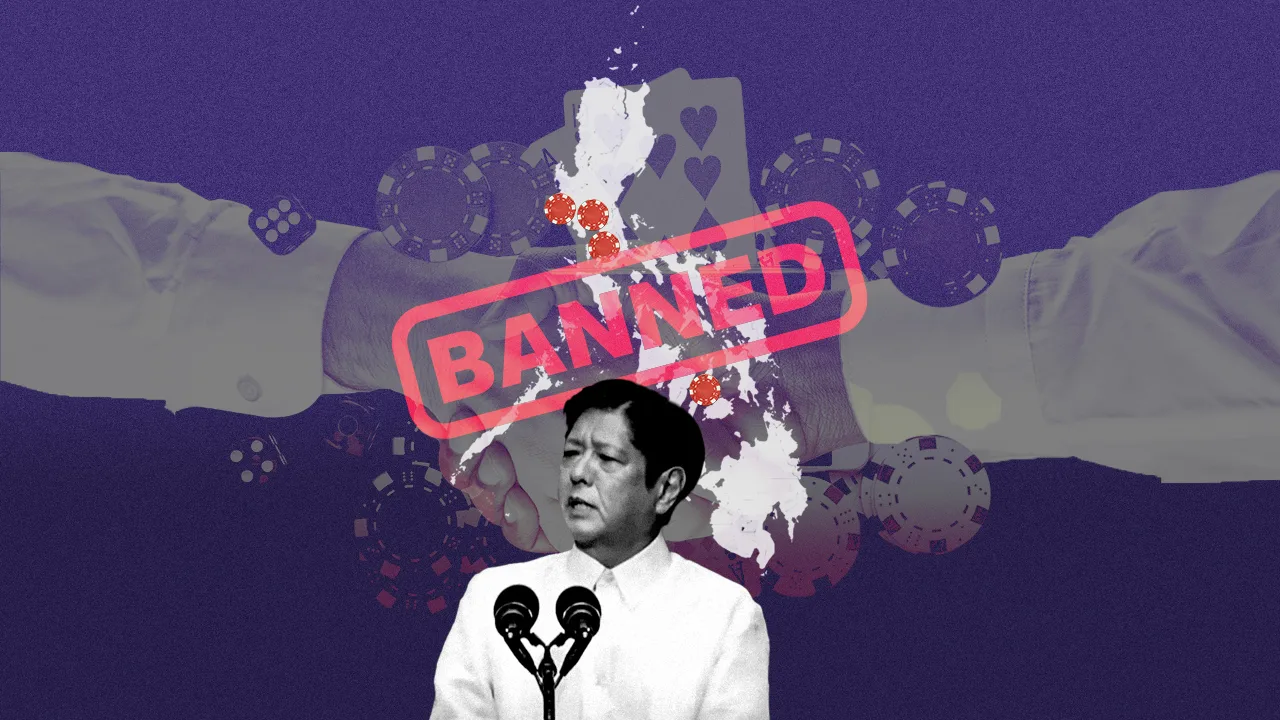
The executive order banning Philippine Offshore Gaming Operators (POGO) is about to be issued, and it is still unclear which parts of the country's billion-dollar gambling industry will be affected, but regulators hope that electronic gambling and support sectors can continue to operate.
Gilbert Cruz, head of the President's Anti-Organized Crime Committee (PAOCC), stated that the executive order (EO) banning POGO will be published in the next two weeks. Cruz mentioned that the definitions and broad concepts of what will be banned have been drafted, but the implementation details are still being finalized.
"After drafting the executive order, we will convene a technical working group, which includes the Philippine Amusement and Gaming Corporation and other agencies, to ensure that everything required in the executive order is addressed," Cruz said at a Senate committee hearing chaired by Senator Sherwin Gatchalian.
While President Ferdinand Marcos's announced ban will apparently end the operations of POGO and Internet Gambling License holders (IGL), it is still uncertain whether the ban will extend to other related sectors of the gambling industry, which employ approximately 10,000 Filipinos.
Currently, the gambling industry includes:
- POGO or IGL
- Special Category of Business Process Outsourcing (SCBPO)
- Support Service Providers
- Electronic Gambling License Holders
As per Marcos's directive, all POGO and IGL are required to cease operations by the end of 2024. These offshore gambling operators are notorious for engaging in fraud, human trafficking, and other illegal activities.
As the name implies, SCBPOs are companies that act as business process outsourcers for overseas gambling companies. Alejandro Tengco, chairman of PAGCOR, stated at a Senate hearing that SCBPOs must submit contracts with the offshore gambling companies they serve before obtaining a license.
"They do not accept any form of bets. Their main job is to act as the backend operations for large, legitimate global gambling companies," Tengco said.
Tengco mentioned that under his government's leadership, these SCBPOs have obtained 14 to 16 licenses, all serving overseas gambling companies. As of August 31, these companies employed a total of 5,038 workers, of which 4,901 were Filipinos and 137 were foreigners.
When asked if the executive order includes a ban on special category BPOs, Tengco declined to comment, stating he did not want to preempt the executive order.
In addition to SCBPOs, some support companies for gambling operators have also set up shops in regions managed by investment promotion agencies. For example, the Cagayan Economic Zone Authority (CEZA) hosts so-called "interactive gaming support service providers." According to CEZA, these companies do not operate any gambling business, although they collaborate with overseas gambling operators. "We only provide content, technical support, and IT support. There are absolutely no bets, as we do not have inbound [internet traffic]. Our [internet service providers] only provide outbound services. We block any inbound traffic. That's the difference between PAGCOR and us," said CEZA administrator Katrina Ponce Enrile.
Enrile mentioned that CEZA has about 2,800 employees working in these companies. Meanwhile, the Bataan Freeport Authority also has three service providers, employing at least 1,700 Filipinos.
But if these SCBPOs and service providers continue to exist after the POGO ban, can POGO simply shift to this industry? PAOCC thinks it's unlikely.
"For POGO workers and operators, it would be more comfortable to hide a smaller version of POGO in apartments or condos, but not to enter those special category BPOs, as these are already on record." PAOCC head Cruz said. What about electronic gaming?
Even if POGO shuts down, the gaming industry continues to thrive through its rapidly growing and profitable electronic gaming business. Glamorous land-based casinos are also involved, Tengco noted, with all casinos in the entertainment city area now having electronic gaming operations, except for one.
Before the executive order on POGO is issued, there is still a possibility that the ban could extend to electronic gaming operations, although Tengco presented strong arguments against this at the Senate hearing. In 2023, PAGCOR set a record with 22.5 billion pesos in online gambling fees alone. This year, Tengco estimates that online gambling fees might account for 35% of PAGCOR's revenue.
"This is the trend, and I believe it will be the future of the gambling industry," Tengco said, adding that the revenue of integrated resorts and casinos is beginning to stabilize. "Most jurisdictions around the world are legalizing online gambling, even first-world countries."










